John Coltrane (September 23, 1926 – July 17, 1967) – Africa (1961)
Trane wrote the masterpiece title track to his first album on Impulse!, arranged by Eric Dolphy & McCoy Tyner, one of the first tracks he ever recorded at Van Gelder Studio.
Watch full video on Twitter.
View most updated version of this post on Substack.
John Coltrane was one of the most influential jazz giants of the twentieth century.
Born in Hamlet, North Carolina, a small town near the South Carolina border, Coltrane grew up in High Point, NC near Winston-Salem. While attending high school there, he learned clarinet and alto horn before switching to saxophone, influenced by Lester Young’s playing with the Count Basie Orchestra. After graduating in 1943, he moved with his mother to Philadelphia, where she bought him his first sax for his birthday at age 17, exactly eighty years ago. He took saxophone lessons in Philly from 1944-45 and in 1945 worked as a professional musician for the first time as part of a trio that played local cocktail lounges.
Coltrane enlisted in the Navy on August 6, 1945 and served for a year before his service ended. He was stationed at Pearl Harbor where he played in the base’s all-white swing band. They continuously billed him as a guest performer so senior officers would not realize he had integrated the band. It was in Hawaii that he participated in his first recording session on July 13, 1946 with other Navy musicians.
See our earlier posts on Coltrane’s compositions “Big Nick” (1962) and “Alabama” (1963) for more background on his subsequent career and discography.
In 1960 ABC-Paramount formed its jazz subsidiary Impulse! Records and hired producer and arranger Creed Taylor to run it. Coltrane was the first artist Taylor signed, after buying out his existing contract with Atlantic Records.
His debut recording session for Impulse! on May 23, 1961 also marked the first time he recorded at the new Van Gelder Studio in Englewood Cliffs, New Jersey, a building Rudy Van Gelder had moved into in July, 1959 (although he had previously recorded with Miles Davis at Van Gelder’s original studio location in Hackensack, NJ). Coltrane would record at this new, improved facility for most of the rest of his career, and remained on Impulse! for all of it.
The tracks recorded that day and at another session held the next month on June 7 were released as Africa/Brass on September 1, 1961, Coltrane’s debut Impulse! LP. He was accompanied by a large group, including his core players McCoy Tyner on piano, Elvin Jones on drums, bassist Reggie Workman, and multi-instrumentalist Eric Dolphy on sax and woodwinds. Dolphy had been invited to join the group earlier in 1961, which made it a quintet. Also on hand were Booker Little and Freddie Hubbard on trumpet, “Pat” Patrick (Deval Patrick’s father) on baritone sax, Bill Barber on tuba, and an entire French horn section featuring Julius Watkins, Bob Northern, Donald Corrado and Robert Swisshelm.
Coltrane’s modal version of Rodgers and Hammerstein’s “My Favorite Things” from The Sound of Music had immediately become a crossover hit for him, issued two months before in March, 1961 as the title track of his next-to-last album (of new material) on Atlantic and a two-part single version.
He followed it up for Africa/Brass with a beautiful rendition of the English folk ballad “Greensleeves.” Arranged by Tyner, it was one of the first tracks to be recorded on May 23. Additional musicians in the orchestra were Julian Priester and Charles Greenlee on euphonium, Garvin Bushell on piccolo and woodwinds, Miles Davis’ former bassist Paul Chambers, and Jim Buffington playing one additional French horn.
As he had on My Favorite Things, Coltrane played soprano sax on Africa/Brass in addition to his regular tenor. Davis had bought one for him in March, 1960 while touring Europe, and Coltrane began playing it live that summer, exploring the instrument’s sounds.
The same day, a first take of the album’s stunning title track “Africa” was recorded. Written by Coltrane and arranged and conducted by Dolphy and Tyner, it was one of three versions recorded over the album’s two sessions. The take eventually chosen for release was recorded on June 7, a 16 1/2 minute masterpiece that took up the LP’s entire first side.
Also featured on “Africa” were trombonist Britt Woodman, Carl Bowman on euphonium, and Art Davis joining Reggie Workman on bass. It was the only one of the album’s tracks Dolphy himself played on, alternating between alto sax, bass clarinet, and flute.
Two days after setting foot in the new Van Gelder Studio for the first time, Coltrane and his group were back at A&R Studio in New York City recording tracks for Olé Coltrane, his last album that would be issued by Atlantic Records before he left the label. The rest of his quintet were there, along with bassist Art Davis and trumpeter Freddie Hubbard from the Africa/Brass session. Eric Dolphy was listed in the LP’s original credits as “George Lane,” since he was under contract with Prestige Records at the time.
A total of four tracks were recorded that day on May 25, 1961, of which three were included on Olé Coltrane (“Olé,” “Dahomey Dance,” and the beautiful jam “Aisha,” written by Tyner and named for his first wife) and released that November.
In the summer of 1966, a year before Coltrane’s premature death at age 40 from liver cancer, critic Frank Kofsky drove with Coltrane from New York City out to his Long Island home, where he interviewed him. Excerpts from the audio recordings of their car ride and interview were animated in 2015 for PBS’ Blank On Blank series of interviews from the past.
The full audio of Kofsky’s interview is posted on Reelblack’s YouTube channel.
Happy Heavenly 97th Birthday to the great John Coltrane.
Further info:
“John Coltrane: A Commemorative Interview,” 1966 interview (full text) by Frank Kofsky, Ann Arbor Sun, September 27, 1974.
Saint John Coltrane: A Love Supreme, BBC documentary, 2004.
“John Coltrane and the essence of 1961,” The Washington Post, November 3, 2021.
“A Newly Discovered Realm of Accomplishment for John Coltrane,” by Richard Brody, The New Yorker, July 18, 2023.
#jazz #EricDolphy #McCoyTyner #JohnColtrane


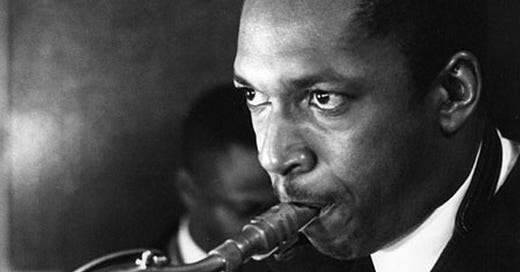

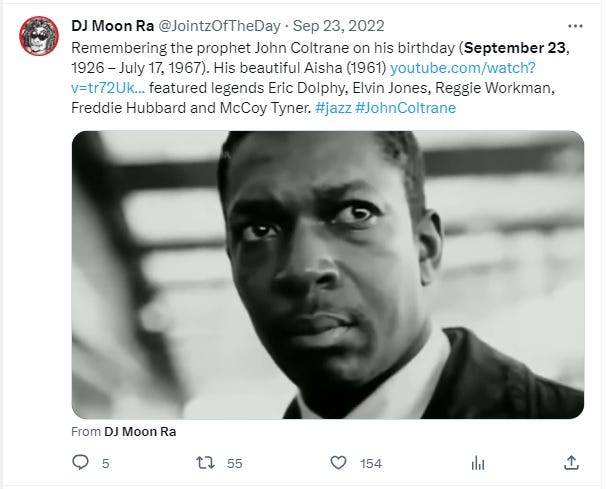

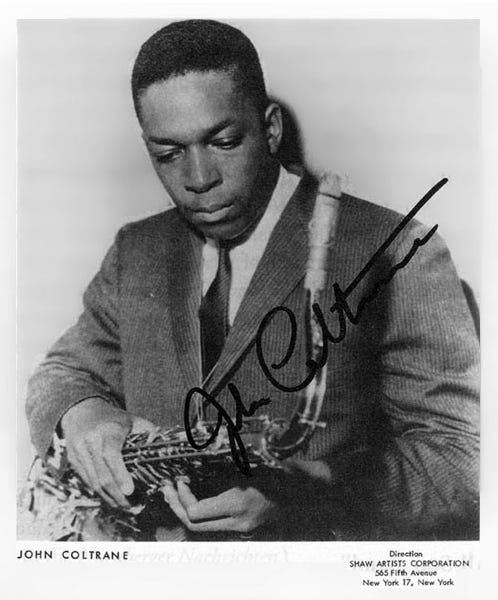
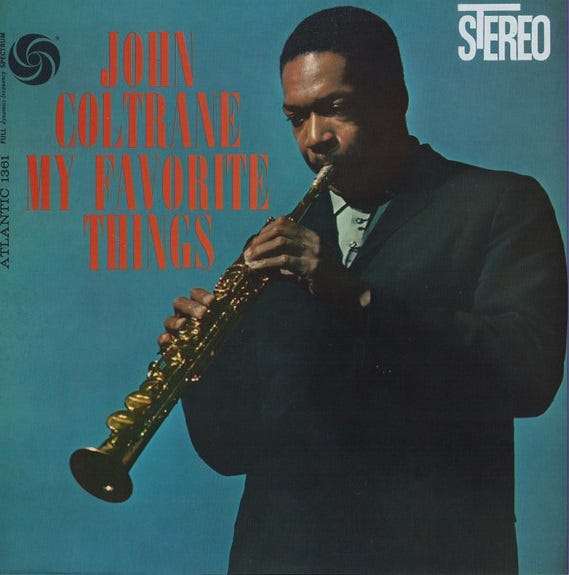
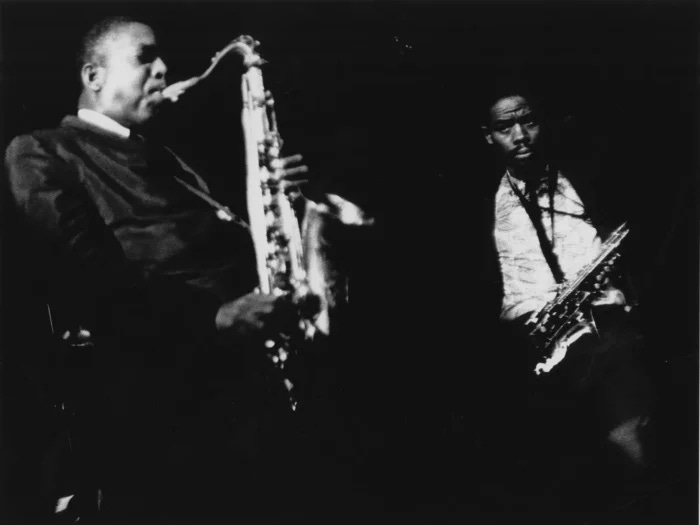

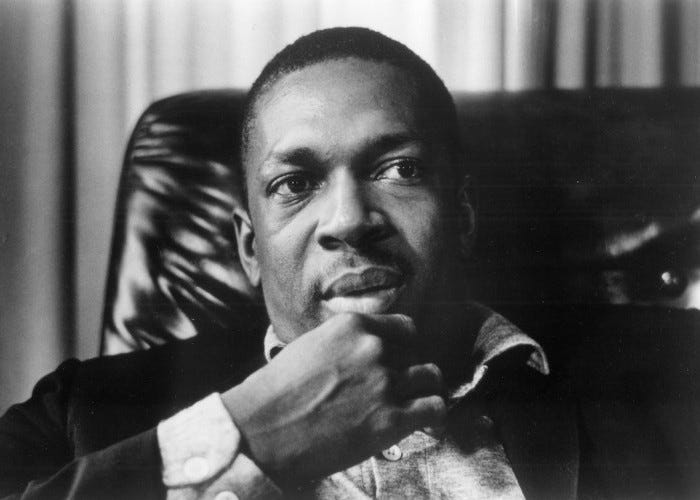
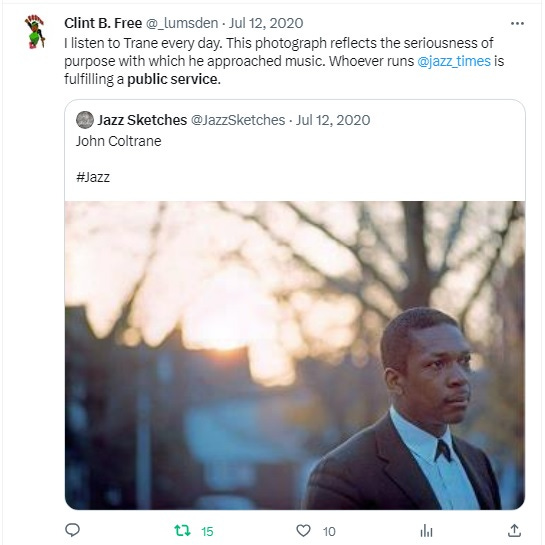
🙏
An excellent tribute. Thanks so much for this.